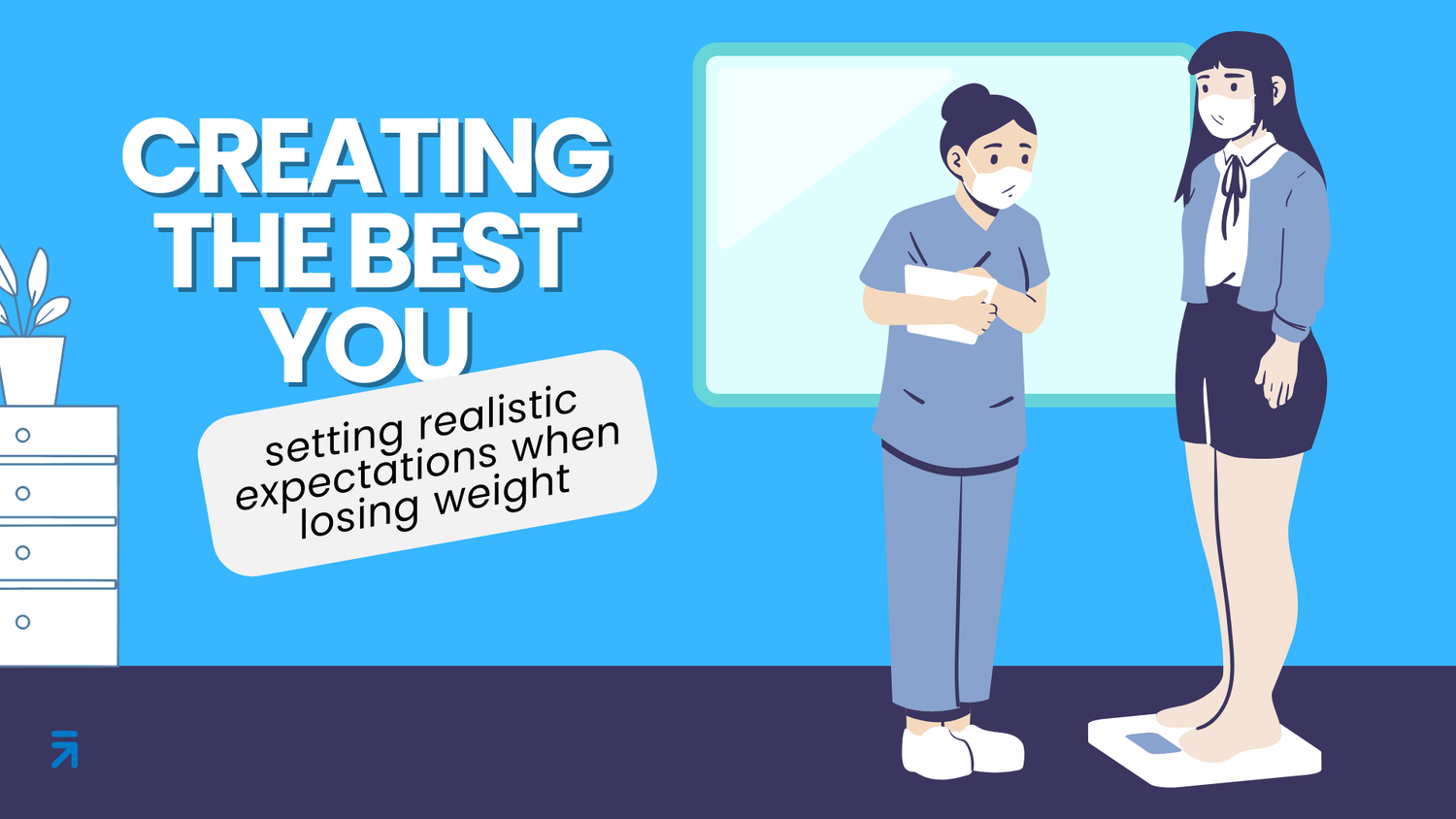Over the years, there has been a growing emphasis on incorporating body-positive principles into corporate wellness programs. The goal is to foster a work environment that supports both employee health and well-being without promoting harmful body-shaming or unrealistic physical standards. One tool that can help bridge the gap between corporate wellness and body positivity is the use of advanced body composition scales.
Traditional weight-based metrics have long been the go-to for workplace wellness initiatives, being a common part of regular medical checkups. However, these metrics fail to capture the nuances of overall health and can reinforce negative associations with body size. Body composition analysis, on the other hand, provides a more holistic view of an individual's physical state by measuring factors like body fat percentage, muscle mass, and hydration levels.
When implemented properly, body composition data can empower employees to focus on fitness goals that go beyond the number on the scale. This data can inform personalized wellness plans, guide healthy habit-building, and promote self-acceptance - all without stigmatizing certain body types. In doing so, organizations can create a culture that supports both physical and mental well-being.
So, let’s explore how employers can leverage smart body composition technology to cultivate a corporate environment that is truly welcoming and body-positive.
What Are Body Composition Scales?

Body composition scales are innovative tools that provide a comprehensive assessment of an individual's body composition. These scales go beyond simply measuring weight, taking into account factors such as muscle mass, body fat percentage, bone density, and water content as well.
By providing this valuable information, they offer a more thorough understanding of one's overall health and fitness level. Whether used in a professional setting or at home, these scales can help individuals monitor their progress, set realistic goals, and make informed decisions regarding their diet and exercise routines. With their ability to provide accurate and detailed data, body composition scales have become increasingly popular among athletes, fitness enthusiasts, and individuals striving to achieve a healthier lifestyle.
Why Body Composition Scales are a Must in Corporate Wellness Programs?
Incorporating body composition scales into corporate wellness programs is essential for several reasons. These scales are specifically designed to measure various components of the body, such as fat percentage and muscle mass, offering valuable insights into an individual's health and fitness goals.
One of the main benefits of using body composition scales in corporate wellness programs is the ability to track progress accurately. Unlike traditional weighing scales, body composition scales provide a more comprehensive analysis of a person's body composition. This allows individuals to monitor their progress more effectively and make adjustments to their fitness and nutrition routines if necessary.
Another significant advantage of body composition scales is their ability to measure fat percentage. Determining fat levels is crucial for assessing overall health and fitness. High levels of body fat have been linked to a range of health issues, including heart disease and diabetes. By regularly tracking fat percentage, individuals can take proactive measures to reduce their risk of these diseases, leading to improved overall well-being.
Moreover, body composition scales are particularly relevant in corporate wellness programs because they cater to a wide range of fitness goals. Whether an individual is aiming to lose weight, increase muscle mass, or simply maintain a healthy body composition, these scales provide valuable data to track progress and guide individuals toward their desired goals.
Why Is Corporate Wellness and Body Positivity Essential?

Corporate wellness and body positivity are two essential aspects that play a vital role in creating a positive and inclusive work environment. In recent years, companies have recognized the importance of promoting employee well-being and fostering a culture that embraces diversity and individuality.
When employee health and wellness are prioritized, it can lead to reduced stress, increased job satisfaction, and overall better physical and mental well-being among the workforce, translating to higher productivity, lower absenteeism, and a more positive work environment.
Preventative wellness programs that encourage healthy behaviors can also help reduce the incidence of chronic diseases and medical issues among employees, lowering healthcare costs for both the company and employees and benefiting the overall financial health of the organization.
Prospective and current employees are increasingly seeking out companies that demonstrate a strong commitment to employee well-being, making corporate wellness and body-positivity initiatives attractive for talent attraction and retention.
When employees feel valued, supported, and comfortable in their work environment, it can lead to higher morale, increased engagement, and stronger company loyalty, positively impacting productivity, creativity, and overall business success.
Body-positivity initiatives also help foster a more inclusive workplace culture that celebrates diversity and prevents discrimination based on physical appearance, supporting broader DEI (Diversity, Equity, and Inclusion) efforts.
Finally, addressing mental health through corporate wellness programs, destigmatizing conversations, and promoting self-care can profoundly impact employee resilience, job performance, and overall quality of life.
How to Incorporate Body Composition Scales in Employee Wellness Initiatives?
Incorporating body composition scales in employee wellness initiatives can be a helpful way to support and empower employees, but it should be done thoughtfully and with a focus on overall health, not just weight.
When offering body composition scale assessments, it is important to make participation voluntary, provide thorough context and education around what the data means and how it relates to overall health and wellness, and frame the assessments within a broader corporate wellness program that addresses multiple dimensions of health, including physical activity, nutrition, mental health, and work-life balance.
Strict protocols should be implemented to protect employee privacy and ensure that all body composition data is kept completely confidential, and employees should be provided with access to wellness coaches or nutritionists who can help them interpret their body composition data and develop personalized, sustainable health improvement plans.
It is also crucial to reinforce body-positive messaging throughout the wellness program and ensure that all communications celebrate the diversity of body types and avoid stigmatizing language around weight or appearance.
Finally, it is important to regularly solicit feedback from employees and monitor program participation and outcomes, being prepared to adjust the approach if the body composition assessments are not being well-received or are having unintended negative impacts.
The key is to position body composition assessments as just one element of a comprehensive, holistic wellness program that empowers employees to improve their health in a supportive, non-judgmental environment.
5 Tips to Promote Body Positivity in the Workplace

Body positivity has become an increasingly important topic of discussion that people from various walks of life are starting to prioritize. This is especially true within the workplace, where individuals spend a significant amount of their time. Promoting body positivity in the workplace is crucial as it has a direct impact on both psychological and physical health.
Firstly, body positivity in the workplace contributes to better psychological health. Many individuals struggle with insecurities and negative body image, which can lead to low self-esteem, anxiety, and even depression. By fostering a body-positive environment, employees are more likely to feel accepted, valued, and confident in themselves. This positive perception of self directly translates into improved mental well-being and increased overall happiness.
Secondly, promoting body positivity in the workplace is essential for physical health. A negative body image often leads to self-deprecating behaviors such as restrictive eating or over-exercising, which can result in serious health complications. Encouraging body positivity means promoting healthy lifestyle choices rather than focusing on appearance alone. Employees are encouraged to prioritize self-care, engage in regular exercise, and nourish their bodies. This shift in mindset leads to improved physical well-being, reduced stress levels, and decreased risks of developing chronic illnesses.
Furthermore, fostering a body-positive environment improves employee well-being and engagement. When individuals feel comfortable and accepted for who they are, they are more likely to actively participate in the workplace. Employees who feel valued and supported by their colleagues are motivated to perform at their best, resulting in increased productivity and job satisfaction. Additionally, a body-positive workplace cultivates a sense of community and camaraderie, resulting in stronger team dynamics and improved collaboration.
Takeaway
Incorporating body-positive principles into corporate wellness programs is crucial for fostering a supportive and inclusive work environment. Traditional weight-based metrics are outdated and can perpetuate harmful body image issues. By utilizing advanced body composition scales, companies can offer a more comprehensive view of health that goes beyond mere numbers on a scale. This approach not only helps employees set and achieve personalized fitness goals but also promotes self-acceptance and overall well-being. By prioritizing body positivity and holistic health metrics, organizations can create a culture that values both physical and mental health, ultimately leading to a more engaged, productive, and satisfied workforce.
Renpho Health Tips
-

Empowering the Elderly: How Smart Scales Can Help Fight Against Malnutrition for Seniors
July 15, 2024
Read more >
-

Ideal Height and Weight for Different Age Groups Explained
July 11, 2024
Read more >
-

How Accurate Are Body Fat Scales? Pros and Cons to Consider
July 11, 2024
Read more >
-

Creating the Best You: Setting Realistic Expectations When Losing Weight
July 7, 2024
Read more >
-

Hold Back on the Bite: Finding Balance in Mindful Eating
June 24, 2024
Read more >




































